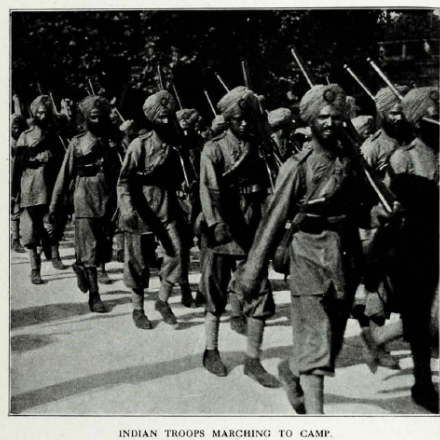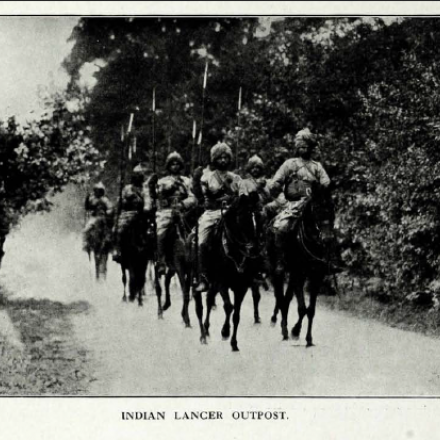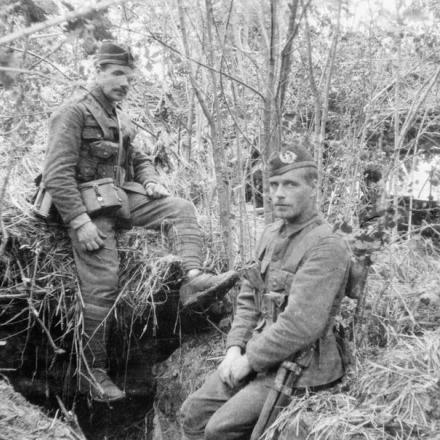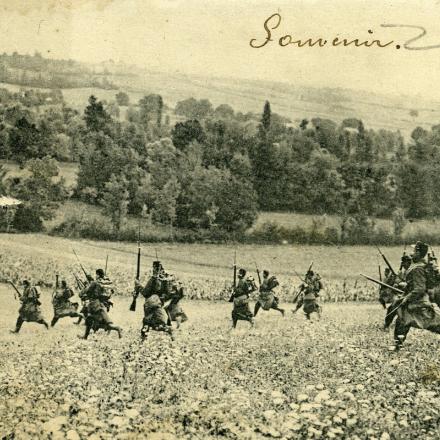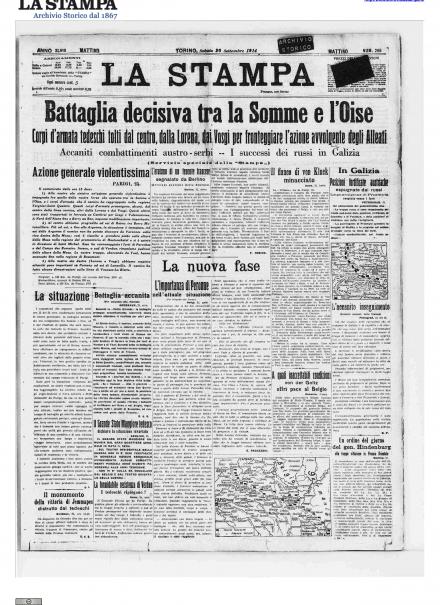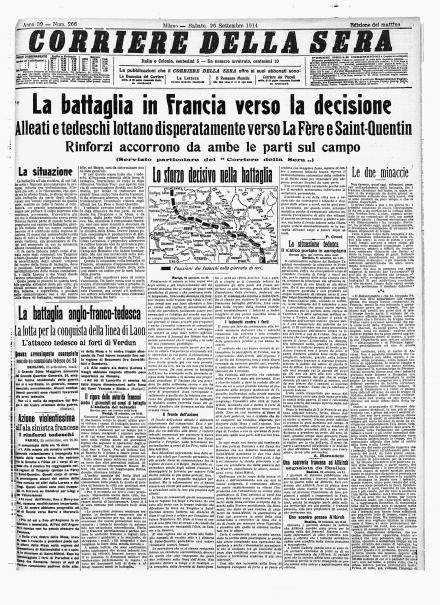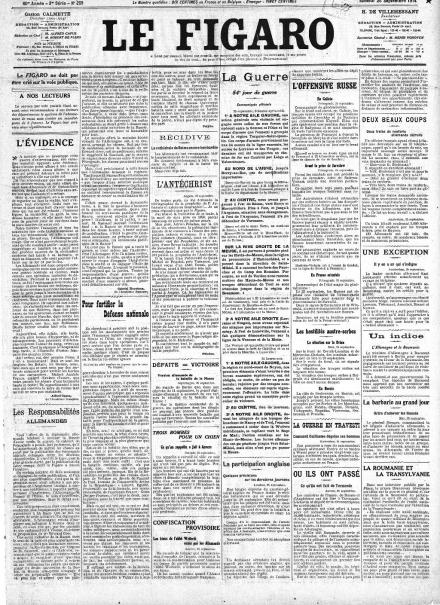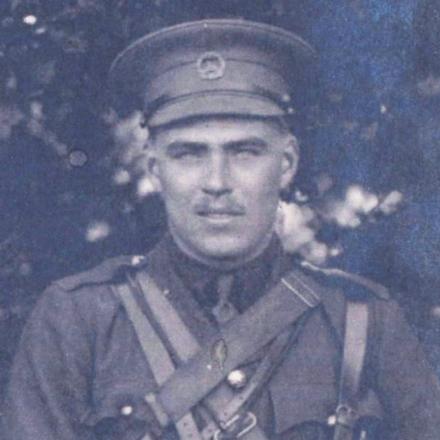Rinforzi indiani in Francia
Se sulle sponde dell’Aisne si segnalano solo piccole scaramucce; il 26 settembre è la battaglia di Albert a registrare gli scontri più feroci del giorno. Qualche chilometro a nord-est la Germania conquista Bapaume, crocevia interessantissimo. Sulla Meuse i tedeschi provano a sfruttare la recente presa di Saint Mihiel; niente da fare, i tentativi di attraversare il fiume falliscono.
Per gli Alleati sono in arrivo i rinforzi: la prima unità della Expeditionary Force Indiana è giunta a Marsiglia; un viaggio iniziato trentaquattro giorni prima. Ora bisogna solo portarla fino alla prima linea.
Sul fronte orientale i tedeschi provano a forzare le difese russe sul Nemunas; anche qui si conclude tutto con un nulla di fatto. Ma in Galizia le truppe zariste occupano Rzeszow.
Berlino poi farebbe volentieri a meno di ascoltare le notizie d’oltre oceano. Non c’è storia. A Tsingtao vengono abbandonati alcuni avamposti e dal Sud Africa è partita una violenta controffensiva verso la Namibia.
Attenzione ai Balcani. Dopo le parole dei delegati rumeni le voci si rincorrono incontrollabili: tutti restano neutrali, almeno a parole. La Bulgaria però sarebbe molto vicina all’Impero Ottomano; e menomale che simpatizzava per i francesi. Un’eventuale alleanza tra Costantinopoli e Sofia sarebbe controbilanciata dal binomio Grecia–Romania.
Davide Sartori
GLI AVVENIMENTI
Politica e società
- Il Senato albanese a Durazzo elegge principe d'Albania Burhan Eddin, settimo figlio dell'ex sultano Abdul-Hamid.
- Guglielmo II si reca ad assistere alle operazioni nella Prussia orientale.
Fronte occidentale
- Aisne: solo scontri locali.
- Battaglia di Albert: scontro feroce dall’ Oise alla Somme.
- Bapaume viene occupata dalle truppe tedesche.
- Saint Mihiel: vani sforzi tedeschi di attraversare la Meuse.
- I francesi rioccupano, per la quarta volta, Altkirck.
- Attacchi Alleati nei dintorni di Anversa.
- Finisce la prima battaglia della Piccardia.
- La prima unità “A” della Expeditionary Force Indiana sbarca a Marsiglia.
Fronte orientale
- Prussia orientale: battaglia del Niemen (Nemunas): i tedeschi cercano invano di attraversare il fiume.
- Assedio di Osowiec: vani sforzi tedeschi.
- Galizia: i russi occupano Rzeszov.
Fronte d’oltremare
- I giapponesi cominciano il bombardamento sistematico di Tsingtao: i tedeschi abbandonano i loro avamposti.
- Continua la campagna nell’Africa tedesca del sud-occidentale: truppe del Sud Africa combattono nella colonia tedesca.
- Sud Africa: controffensiva britannica a Sandfontein.
Parole d'epoca
Sottotenente Charles Caldwell Sills
Diario
The most ghastly day of my life and yet to one of the proudest because my Regiment did its job and held on against heavy odds.
At 4.15am Germans attacked. Main attack apparently against my regiment, which is the left of our line. D and A Companies in the trenches. B and C hustled up to support, and soon the whole place alive with bullets.
News comes that they are trying to work round our left. The CO asked the Welsh Regiment to deal with this, which it did.
Poor D Company had to face the music more than anyone else. Presently the news comes that the Germans are in a quarry in the middle of our line, i.e that our line was pierced. C Company drove them clean out.
About 3pm, things began to quieten down, D and A companies had done their share of the work on the right and left.
We were able to reorganise more or less, except for D Company’s far advanced trenches, and those we searched at night and found James wounded, Sills and Welby killed.Total casualties. Killed Welby, Simonds, Coker, Sills and 86 men; wounded - Pritchard, James and Gwynn slightly, and 95 men; and missing 12.
These 12 were of D Company, and apparently surrendered. May they be spared to reach England again and be tried by court martial and get what they deserve. Never has the 24th surrendered yet, and in spite of casualties the rest of the Regiment stuck to it and fought as Englishman and 24th men could fight.We are now left with three Officers each in three companies, and only two in the fourth, instead of six in each.
A sad, sad business, but everyone played up, and as the French say, “Qui perd, gagne”. We have lost men and officers, but have again won a name for doing what it is our duty to do and in this case we held a very important line without giving a yard.
